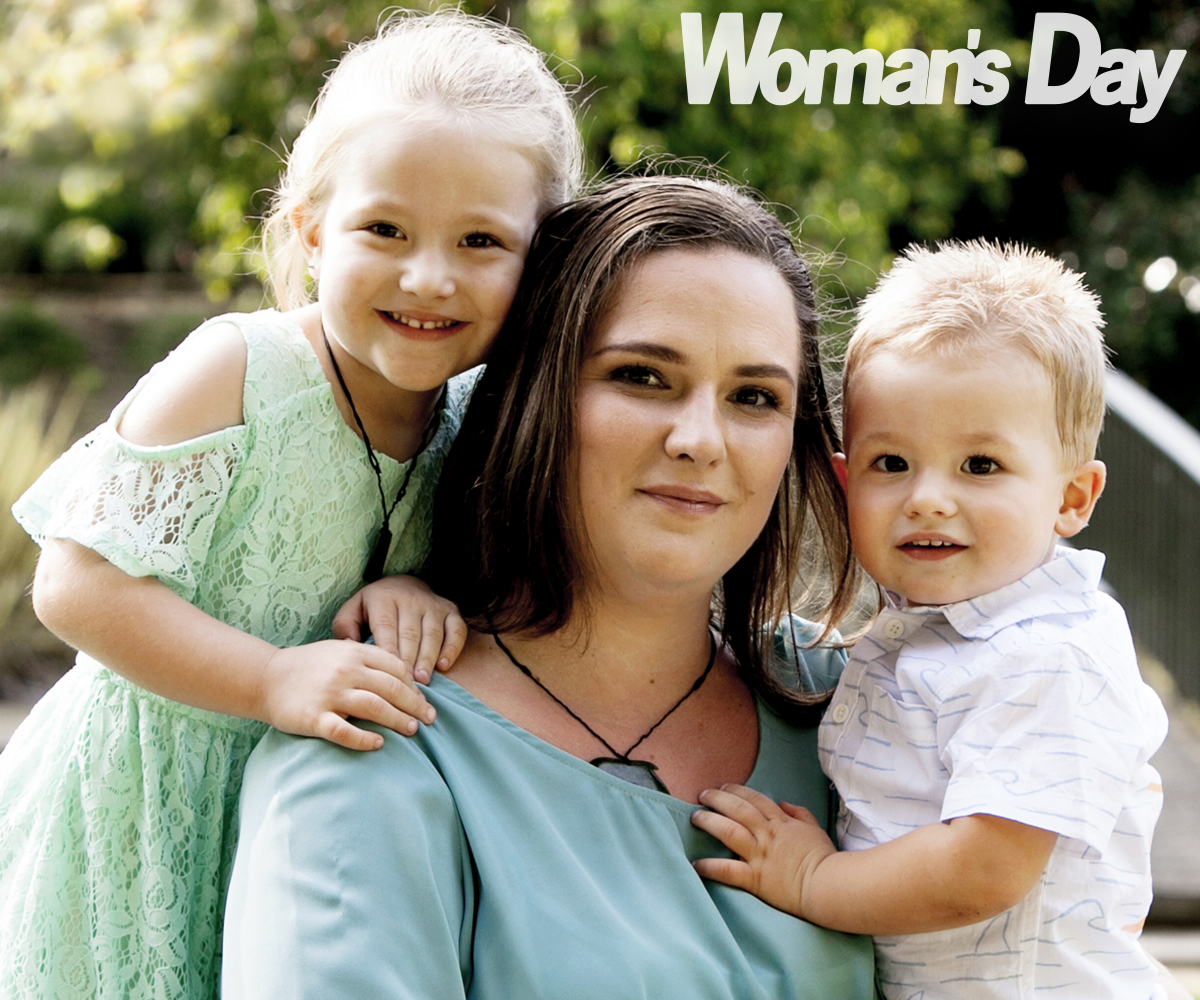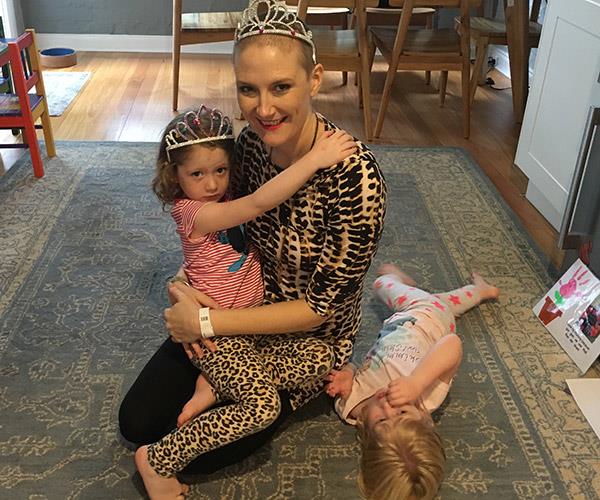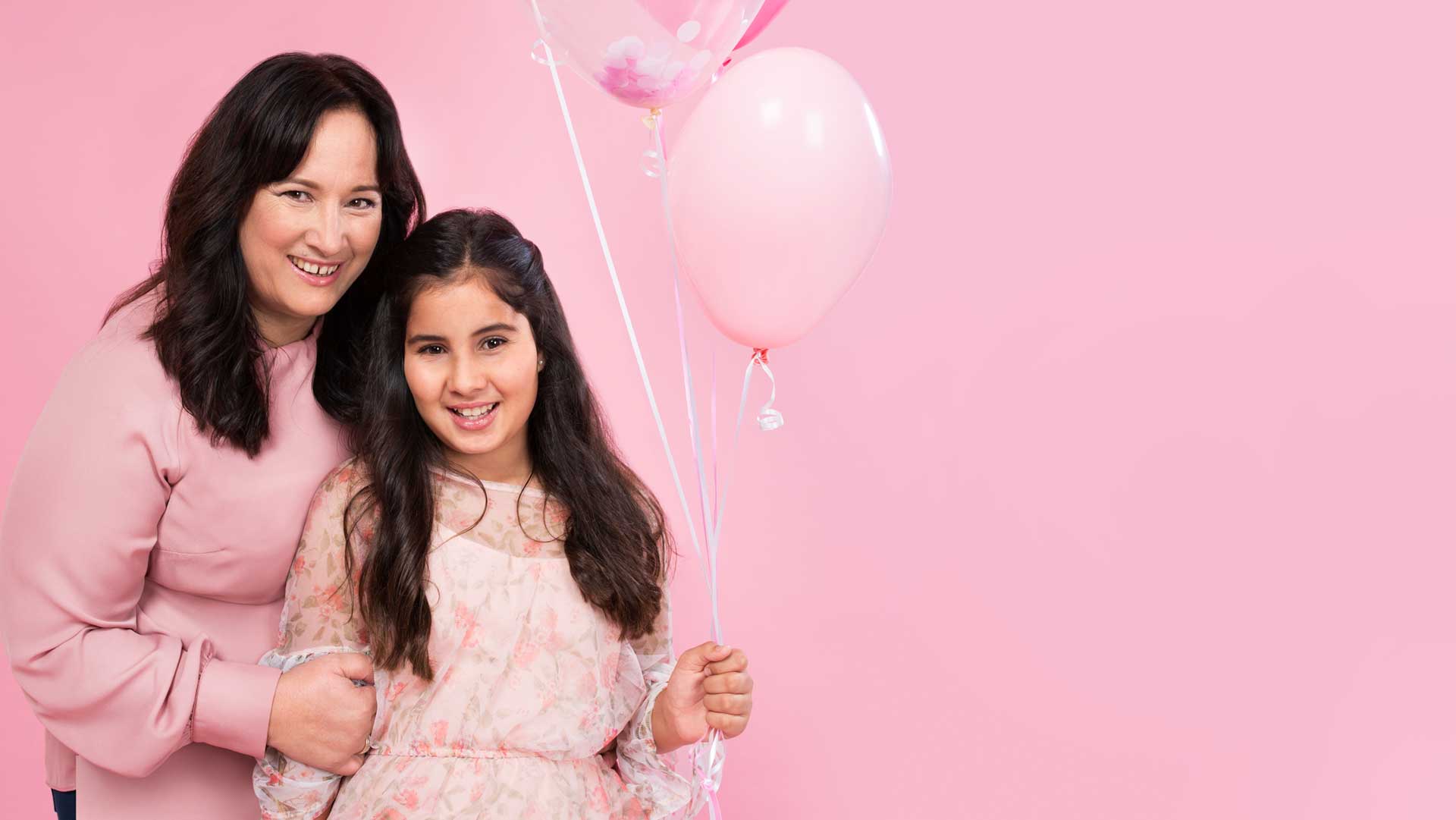Dannevirke mum Emma Tregurtha recently made one of the toughest decisions she will ever make in her life. But as she gathers her gorgeous children, Arizona, four, and Hunter, two, into her arms, it is also one of the simplest.
“I want to see my kids grow up and go on to have their own children one day,” says Emma, 32, gently kissing the top of Hunter’s head.
A year ago, Emma became one of the youngest women in New Zealand to have an elective total hysterectomy – surgeons removed her uterus, cervix, fallopian tubes and ovaries.
The radical surgery robbed her of any ability to have more children and cruelly pushed her into surgical menopause, with its night sweats, weight gain, hot flushes and mood swings, but it was an operation that she opted to have.
Emma has also decided to go ahead with a full mastectomy or removal of both of her breasts.
“People have said I am mutilating my body, but to me, I’m taking control of my own future,” explains Emma, smiling at her partner Rob Boyle.
“You know I will love you either way,” the 31-year-old meat worker tells her matter-of-factly.
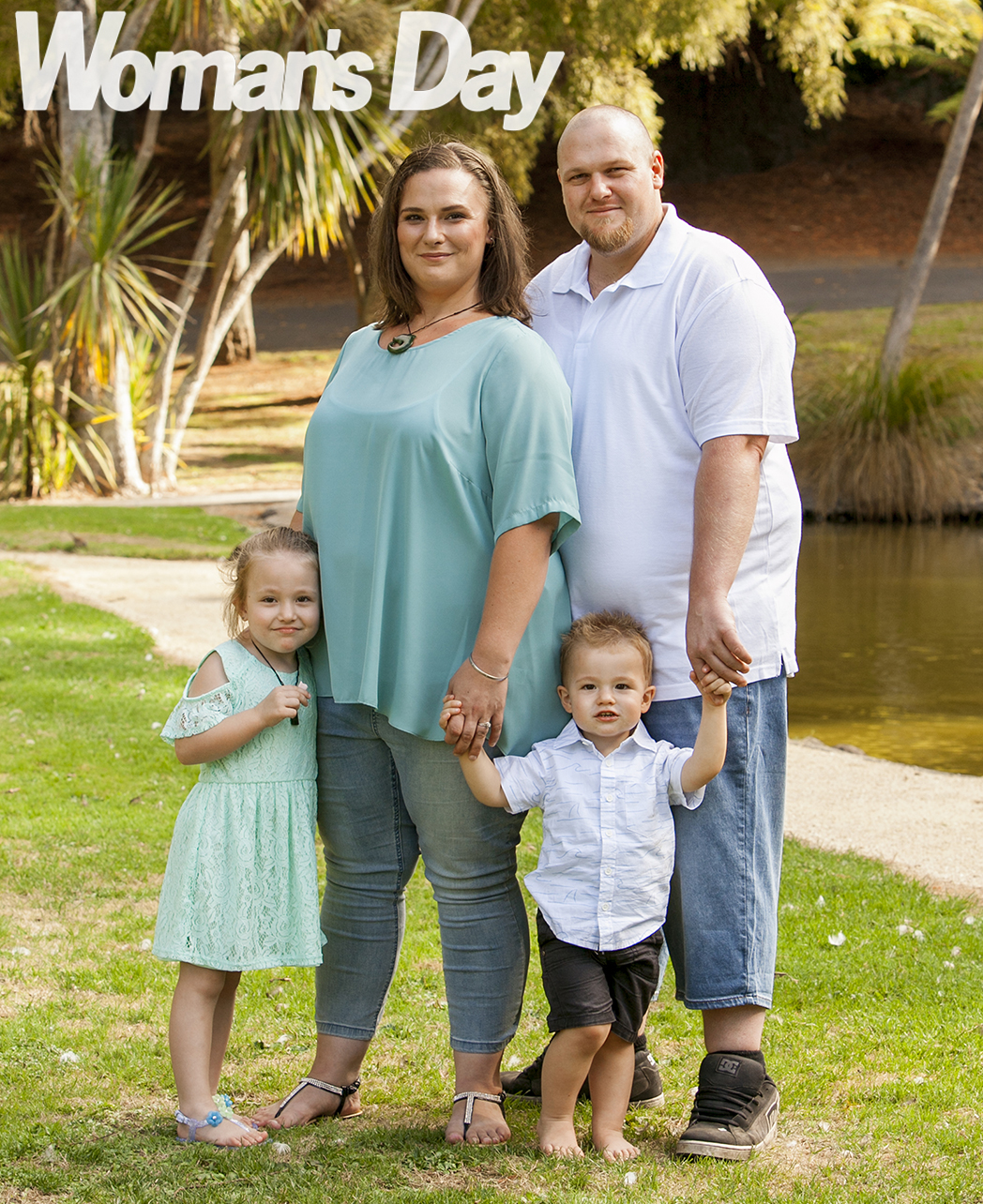
“To know I could have passed a potentially fatal gene on to my babies is a terrible thing,” says Emma, who has the loving support of her partner Rob.
Emma was in her late 20s when she was told she carried the mutant gene BRCA2, which meant she had an 80% chance of developing breast cancer and up to a 40% chance of ovarian cancer.
“I felt like I had a ticking time bomb inside of me,” she tells.
“People said, ‘Why don’t you just get screened so they can catch the disease early?’ But for me, it was simple – I don’t want cancer in the first place.”
Emma began asking questions about five years ago, when she noticed a lot of her relatives had been diagnosed with cancer.
Her grandfather Bob Morris died at 62 from pancreatic cancer.
A year later, her mum Fiona Tregurtha was diagnosed with breast cancer at the age of 40.
“As a child, I watched my mum battle cancer and that is not something I ever want my children to see me go through,” insists Emma.
“I went to my GP and began asking about gene testing because for me, knowledge is power.”
The family began testing and realised it must have been Emma’s late grandfather Bob who carried the BRCA2 mutation because her grandmother Joy Morris tested negative.
BRCA1 and BRCA2 genes act like a brake to stop abnormal cell growth, but in about one in every 400 people, there is a mutation.
Through gene testing, Emma’s family knows her beloved pop passed BRCA2 on to all three of his daughters, including Emma’s mum Fiona, who survived breast cancer and celebrated her 60th birthday this month.
Emma wasn’t the only one who inherited BRCA2 from her mum. Her little sister Lisa also carries the mutant gene. Their brother Carl has not yet been tested.
“I will love and support any decision my little sister Lisa makes, but it breaks my heart she’s looking down the barrel of a hysterectomy because she’s young and single, and hasn’t yet had the chance to have her own children,” tells Emma.
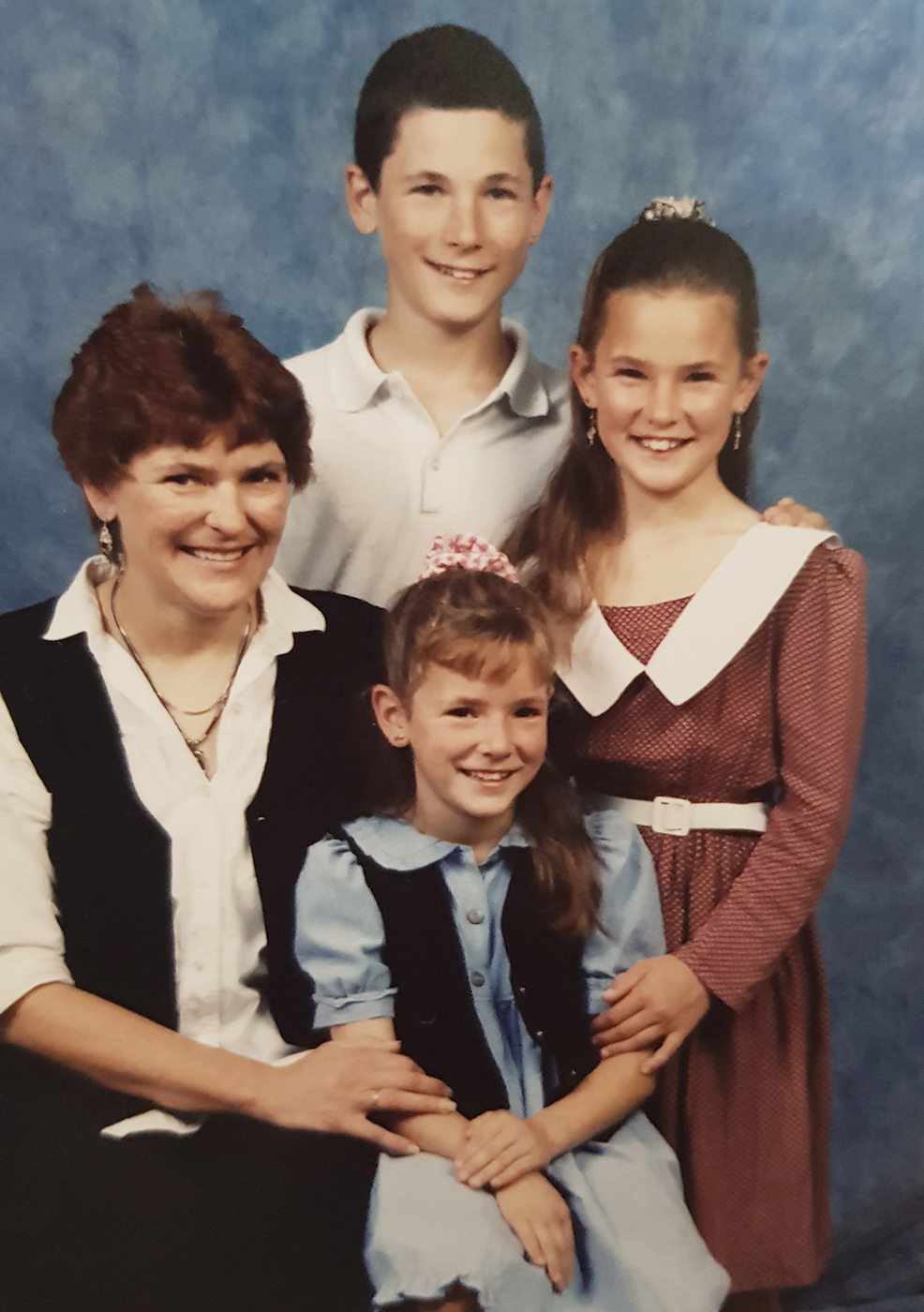
Emma, her mum Fiona and her little sister Lisa all carry the mutant gene. Brother Carl has yet to be tested.
Stay-at-home mum Emma is working hard to reduce her BMI so she can be called up for breast surgery in the coming weeks.
Putting on 25kg in the last year has been a side effect of surgical menopause.
Her decision to go ahead with not one, but two, major operations was not made lightly.
“I struggled for more than a year and in the end, I had weekly counselling to help me work through the issues,” she explains.
“I’m lucky to have amazing friends and family, and Rob has been my biggest supporter.”
Also playing on Emma’s mind when she looks intothe innocent faces of her children is the knowledge they each have a 50% chance of inheriting BRCA2 but cannot be tested until they are 18.
“I feel guilty about that,” she says. “To know I could have passed a potentially fatal gene on to my babies is a terrible thing and something I’ve struggled with.”

As a child Emma watched her mum fight breast cancer.
Emma is lucky that Rob, who she has known since she was a child, is an optimist.
He tells, “I just try to stay positive – and anyway, the kids have my genes as well and they could have kicked yours in the arse.”
Either way, Emma says all she can do is safeguard her own health and educate her children about the gene when they are older.
In the meantime, the couple are taking each day as it comes and hope to marry in thenear future.
“It hasn’t been an easy road and the surgery has been tough, but I want to eliminate a lifetime of stress and worry,” concludes Emma.
“I’ve taken fate into my own hand so I can be around longer for my family.”
